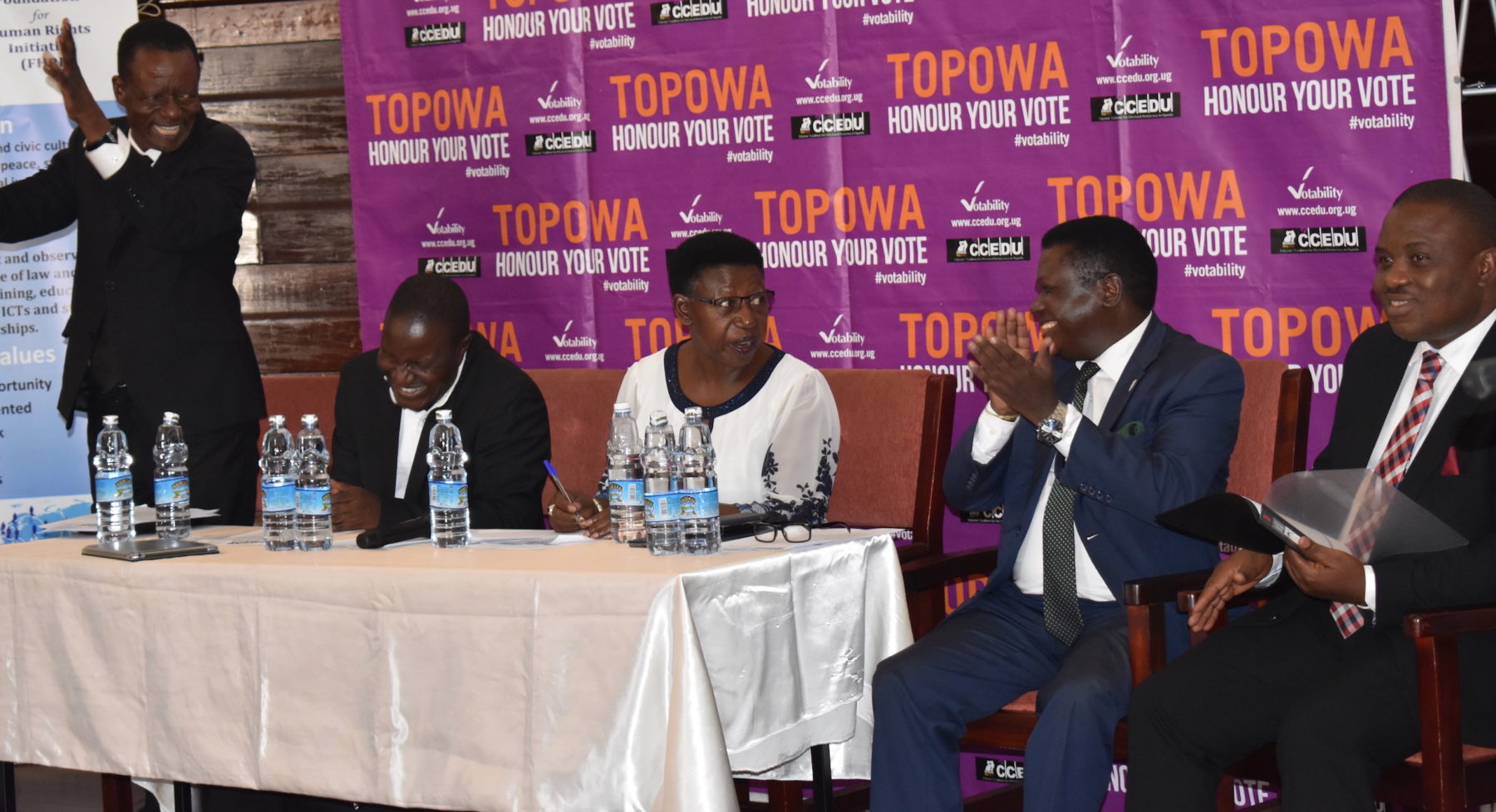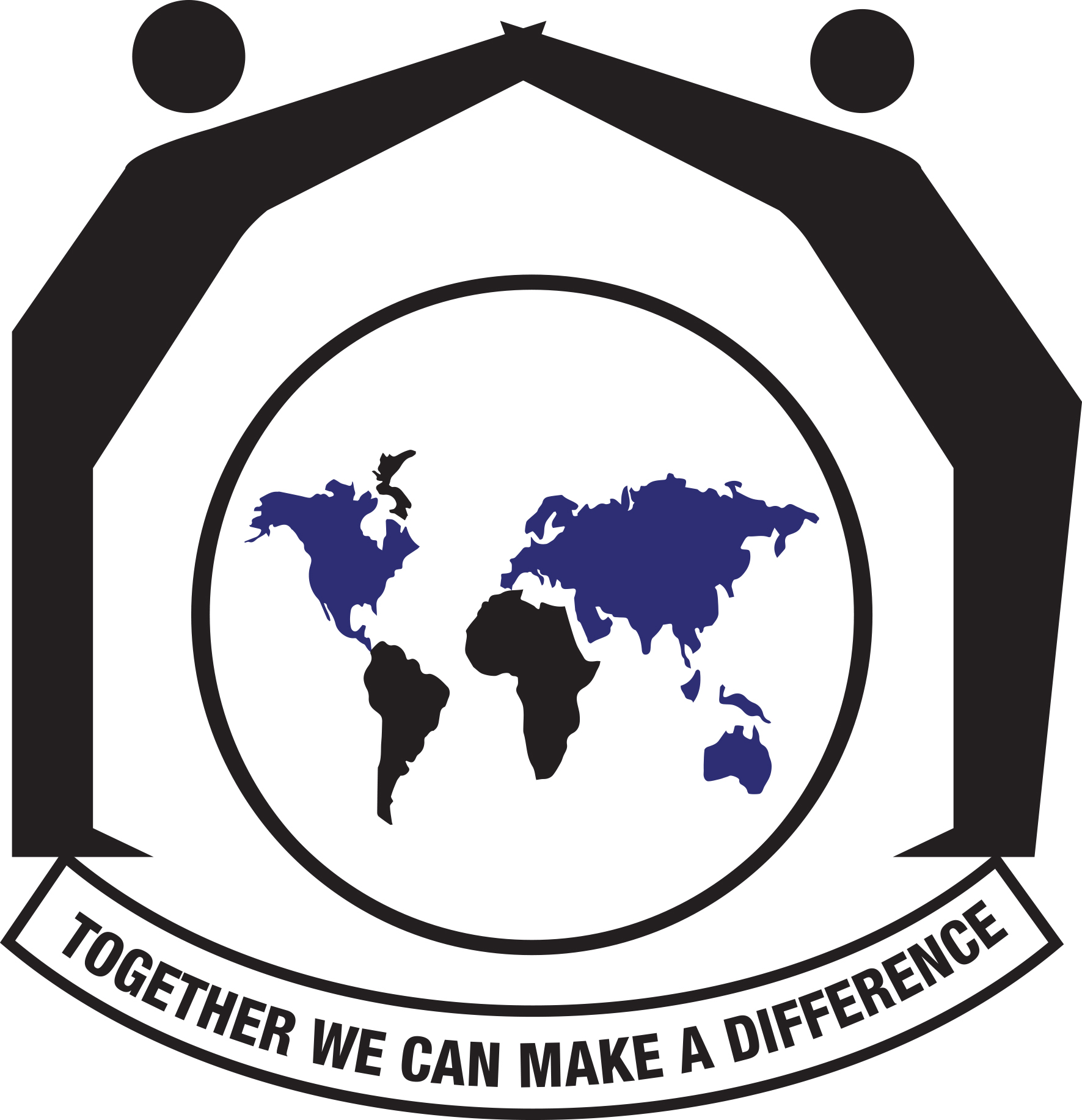
Overall Objective:
To build the capacity of citizens to proactively defend their rights and demand accountability from the state through rights knowledge.
Power is centralized around an individual as distributed by the Constitution, which has resulted in unequal power relations (dominant state vs weak society). The state treats citizens as subjects. A big part of Uganda’s population is a disempowered and apathetic citizenry incapable of demanding accountability from the state due to limited knowledge of rights, legal procedures, and government processes.
As a result of having a huge, disenfranchised population, citizens hardly participate or engage in public affairs. This further reinforces the problem of impunity among state agents. According to a survey conducted by Afro-barometer in 2012, Ugandans are in a state of apathy, and are increasingly losing interest in public affairs due to the government’s failure to fulfil its responsibilities. They do not understand politics and the way government programmes are run. Because of this, Uganda experiences a democratic backlash characterised by deterioration of human rights, rule of law and accountability. Other issues include; the inability of the government to bridge the gap between the rich and the poor; the dissatisfaction in service delivery by the local leadership; and the apparent disparities in the dispensation of criminal justice.
In June 2017, during her Strategic Partnership Meeting with the Democratic Governance Facility (DGF) FHRI presented her 8th Strategic Plan (2017-2021). The Plan titled: ‘Between Rhetoric and Practice: Bridging the Democracy Divide in Uganda’, was based on two broad themes: Active Citizenship and Access to Justice. FHRI implemented these themes through four inter-linked actions: Rights Monitoring; Rights Awareness; Constitution, Legislation and Policy Reform Advocacy; and Legal Services. The Programme was developed following extensive consultations among stakeholders and Programme reviews of FHRI’s 7th Strategic plan (2012-2016).
Under the Active Citizenship theme, FHRI with support from the French Embassy in Uganda in partnership with Bangoma Integrated Development Association (BIDA) organised a series of events in Mbale district under the project code named: My Rights, My Power in March 2018. The project targeted the market women to empower them with human rights knowledge thereby making them responsible citizens capable of demanding for accountability from their leaders. This intervention further revealed the need for increasing knowledge among the population, empowering citizens to demand accountability from the state, and bridging the gap between citizens and state institutions. This intervention kick-started the campaign code-named: ‘My Rights, My Power’ aimed at increasing demand for state accountability and rights knowledge among the citizenry.
Activities:
Using innovative approaches, actions undertaken in this campaign address the underlying causes of powerlessness among citizens as well as bridging the existing information and knowledge gap of rights at the basic level, especially among the youth and the family setups. The actions also promote understanding of civic duties, due process and police powers (arrest, bail and bond), powers, procedures and functions of local authorities (rights, obligations and duties) thereby empowering citizens to demand accountability from state institutions.
Promotion of Active Citizenship:
Basing on the long experience FHRI has in advocating for civic and electoral reforms, regional platforms on civic rights, duties and electoral processes were sought to raise citizens’ consciousness of their civic rights. The findings from the monitoring and observer missions of the previous elections were utilized in the Community dialogues, new and traditional media that were used to arouse the citizens’ consciousness of their civic rights.
Regional Platforms on civic rights, duties and electoral processes:
Through this action, FHRI passed on information that was best suited for every region to the various segments of the population across the country to trigger active citizen participation in political and electoral processes, and increase advocacy for better service delivery. Special attention was given to these topics: the right to vote, citizen participation in elections; independence of the Electoral Commission; leadership and accountability, and the push for electoral reform. This led to increased citizens’ demand for state accountability in the expanded citizens’ spaces for dialogue with state institutions.
Three regional platforms were convened to promote active citizenship in the run up to the 2021 elections in Uganda and to get the public better acquainted with the proposed electoral reforms. The platforms were held on 16th September, 2019 in Mbarara for the Western Uganda; on 20th November, 2019 in Mbale for the Eastern Uganda, and on 19th February, 2020 in Gulu for the Northern region. Among the participants were leaders from: religious, youth, women, civil society, political and disability groups; the media, the security forces and the police. Also in attendance were state actors, members of the Electoral Commission, representatives from government agencies and members of Parliament.
Online Media Campaign using traditional and new methods.
Using a traditional messaging approach, FHRI used the television and radio to promote active citizenship in the run up to the 2021 elections in Uganda to have a fair and inclusive election. The platforms were intended to critically engage policymakers and stakeholders at the national level like the Judiciary, Electoral Commission, Parliament, Office of the Attorney General, political parties among others in order to propose solutions to challenges facing the implementation of the revised election roadmap. This provided an opportunity for citizens to interface with the policy makers on emerging election and human rights-related issues that took place during the election season.
FHRI in partnership with Uganda Human Rights Commission, The Electoral Commission, and NTV held three-2 hour live TV shows aired on NTV Uganda under the campaign. The first two shows were under the theme: ‘Law enforcement during elections’ and the third was under ‘Unwrapping Election Day, 14th January 2021’. The inaugural dialogue was broadcast on 28th October 2020, while the 2nd and 3rd took place on 25th November 2020 and 16th December 2020 respectively.
Using the radio, live talk shows were also held on every regional radio platform to further the discussion on active citizen participation in electoral processes and increase advocacy for better service delivery. Radio Programmes on Radio West (100.2FM) and Open Gate (103.2 FM on elections were also supported.
FHRI used the new media (online/internet-based) to send stimulating messages to encourage citizen engagement in key electoral milestones. Taking the form of satirical texts, captivating graphics as well as locally originated still and short motion images, the messages focused on key aspects of the 20/21 Election Commission Roadmap. These included field demarcation of electoral areas/polling stations, re-organization of polling stations and, the pin-up of electoral areas and polling stations at parishes. This exercise targeted the youth and women in academic institutions and organised groups run between 16th and 28th October 2019 using three social media platforms namely Facebook, Instagram and twitter.
Inter-University Competitions:
With the objective of stimulating debate among the youth on contemporary human rights issues, our Civic Education Unit holds Annual Inter-University Human Rights Competitions under different themes. The Inter-University Human Rights Competition has been running since 2007. FHRI introduced the initiative to reach out to university students by conducting human rights sessions. This culminated into the establishment of Human Rights Clubs in institutions of higher learning. This initiative started with 7 Universities but has grown into the University Human Rights Network, with a membership of 39 human rights clubs established in Universities and Tertiary institutions throughout Uganda. The Human Rights Clubs have promoted respect for human rights in various ways including sensitisation through outreach activities and debates on topical issues.
Former hosts of the competition were Kampala International University (2007-2009); Kyambogo University (2010); Nkumba University (2012); Uganda Christian University- Mukono (2013); St Lawrence University (2014); Busitema University (2015); Ndejje University (2016); Uganda Martyrs University- Nkozi (2017) and Mountains of the Moon University, Fort Portal (2020) and Gulu University (2021).
Civil Society Strengthening
To deepen the understanding of human rights as a basis for building pressure necessary to demand social – political accountability, FHRI reaches out to community based groups of the rural and urban poor. This is done with the aim of increasing their knowledge and understanding of how to develop and implement effective and coordinated advocacy and awareness raising strategies. Citizens are approached using both conventional and non-conventional platforms to create awareness on rights, duties and values.
With the use of public outreach, ICTs, the existing network of paralegals and community-based groups, the action benefited different sections of the public including; Uganda Local Government Association, the private sector and student communities.
In the past, FHRI implemented activities geared towards promoting citizen participation and strengthening accountability in the districts of Kayunga, Kampala, Lira, Kalangala, Luweero, Gulu, Kasese and Sembabule among others. With support from DGF, FHRI implemented a civic-awareness programme to promote participatory decision-making, build capacity of community actors, and nurture a students’ human rights movement from 2012 – 2020.
A similar programme supported by the Danish Family Planning Association was implemented by FHRI in 2016-2017 in Kalangala district. This aimed at strengthening the fulfilment of Sexual and Reproductive Health and Rights through capacity building and advocacy.
In the same breath, from 2008 to 2010, FHRI implemented a programme in the districts of Kayunga, Mbale, Luweero, Gulu and Sembabule aimed at building capacity of community actors to monitor and report human rights violations with support from the European Union.
Comparable actions have been supported by the Finnish NGO Foundation (KIOS) (2007/2008), and DIAKONIA (2012/2003). As offshoots, these programmes inspired the formation of community based groups and also led to the creation of a university human rights network that comprises a total of 39 active student associations.
